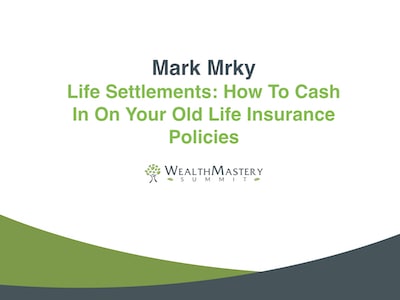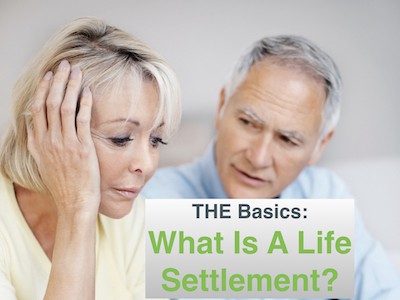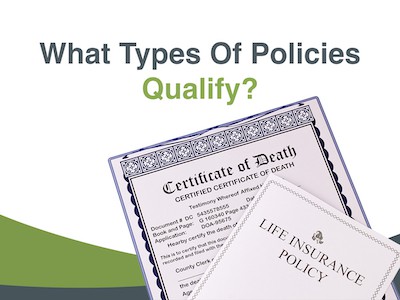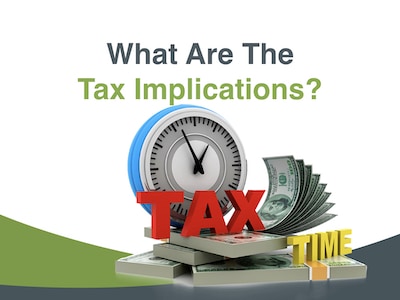This interview with Mark Mrky I did as part of my Wealth Summit series of interviews. Mark is a life settlement broker with Life Insurance Settlements and an expert on the topic of selling a life insurance policy which you no longer need.
Enjoy!

Greg: Hello Wealth Masters. My name is Greg Phelps and I am your host to the summit. Our mission at the Summit is simple. We want to educate and empower you with actionable tools, tips, and tactics to help you grow, protect, and maximize your own personal wealth
Today I have a special guest on: Mark Murky. Mark, are you ready to help us master our wealth?
Mark: I’m ready to help you master the world of life settlements.
Greg: Alright, so for the Wealth Masters out there a little bit about Mark. Mark is a managing member of Life Insurance Settlements Inc. They’re the nation’s most experienced life settlement brokerage. Their sole focus is helping people get the most money possible when selling their life insurance policy on the secondary market place.
Mark began his career with LIS (Life Insurance Settlements) in 2001. His specialty is educating and working with senior clients, estate planners, insurance advisors, attorneys, and other financial professionals about the benefits of the life settlement industry.
He’s presented to groups such as the NAIFA, Top of the Table, Insmark, Society for Financial Service Professionals, National Association of Philanthropic Planners, local estate planning councils, various broker-dealers, insurance carriers, and professional groups on the subject of life settlements.
That’s a whole lot of places that Mark has been a speaker.
Mark has a BA in psychology from the University of Nebraska. As a member of the Life Insurance Settlement Association, he met his wife Deborah while working in Australia. They have two sons, Jack and Sam.
Mark, so that’s a little bit of your background but take a second fill in any blanks that I may have missed.
Mark: I think you’ve got it covered. First, I’ll say I appreciate—you know—the opportunity to talk about selling a life insurance policy, a subject that in my opinion is really one of the single most overlooked topics that financial advisors, estate planners, and even clients often aren’t aware of.
So, I appreciate the opportunity to come in and tell people about the life settlements industry. And for those folks that are sitting there—deciding if their life insurance policy still suits their needs—selling a life insurance policy through a life settlement broker is an option that every single senior at least needs to be made aware of! So I do appreciate the introduction there.
Like Greg said—you know—I’ve been in the industry for 17 years now. My partners—they’ve been in the industry for 24 years. That may not seem like a long time, but actually, it makes us really one of the oldest entities in the life settlement market.
The life settlements market is very young. We’re under 30 years old. And like I said, people are still learning about selling a life insurance policy.
So this is a great opportunity. I appreciate it once again, Greg.
What is a life settlement?
Greg: Okay. Well, Mark, we’re going to just roll up our sleeves and dig right in. The first part of the talk that I want to focus on is just to explain to the viewers out there: “What exactly is a life settlement?”
Mark: Absolutely. What is a Life Settlement? It’s one of those misunderstood topics.

So here is the true definition of a life settlement. A life settlement is when a senior—someone’s over the age of 65—is selling a life insurance policy that they no longer want, need, or can afford, and they change that ownership to a third party (and that third party is normally a financial institution).
So that is the true definition of a life settlement. You’re selling a life insurance contract—it’s an asset that you own—to a third party.
Greg: Okay, and I kind of want to drill down on that.
So a life insurance policy that somebody owns—one of my clients or any other seniors out there—it’s actually an asset that is sellable! I think most people don’t understand that. A life insurance policy is a sellable asset, right?
A life insurance policy is a sellable asset
Mark: Absolutely. In 1911 Congress said that your life insurance contract is actually an asset. That asset you can take and change the ownership to a third party.
That’s exactly what you do—change the ownership to a third party. That’s all you’re doing in a life settlement contract. You’re taking that ownership and changing the beneficiary—you’re changing that ownership—to a third party.
So again, Congress made that act in 1911. They treat life insurance as an asset, which most people aren’t aware of. They don’t know that.
This (life insurance) contract that they’ve been paying on year-in and year-out has present value today. And that’s where we come in as a life settlement broker.
Our job is to make sure people understand that there is a current value to your life insurance policy. That value sometimes might be as high as seven times the current cash surrender! And we’ll get more into that.
But yes, that’s a little bit on the basics of life settlements.
What is a viatical? Is it different from a life settlement?
Greg: Okay. So your life insurance policies are a sellable asset. I’ve dealt with this in the past with other clients.
I’ve had clients call me and they say “Hey, I’ve got this thing. Somebody sold me a Viatical.”
What the heck is a Viatical? Because what you’re talking about with a life settlement sounds an awful lot like a viatical.

Mark: Sure, that’s where the confusion comes in. Number one, you have two sides of the equation when someone says they sold you a viatical.
They may have been—it may have gotten—into the investment side where they invested in the purchase of someone else’s life-insurance policy.
Now, there was an industry way back when in the 80s and 90s. It was called the viatical settlement industry.
Now—by definition—a viatical settlement is simply when an insured sells their life insurance policy and they’ve been given a life expectancy of under 24 months.
Now our industry has life settlements. Now, we’ve transitioned from a viatical (which again simply just means your life expectancy is under 24 months.)
Again, that industry really started in the 80s and 90s when AIDS clientele were taking their policies—they needed money for medical needs things like that—and they were selling those policies to third-party investment institutions.
And then in about the mid-90s, some smart banker said, “We’ll wait a second. We can do this for folks that have very short life expectancies. Why can’t we do it for folks that are 65 and older that have longer life expectancies—as long as 20 years?”
Well, that happened and now we’ve coined it the term “life settlement.”
Greg: So really the only difference is a viatical is technically when the person you’re purchasing the insurance policy from has a life expectancy of under 2 years. Whereas a life settlement is something longer than two years, correct?
Mark: Correct. In our industry two years under is a viatical. Between two years and about 20 years is the cutoff for what will be termed a “life settlement.”
What type of life insurance policies qualify for a life settlement?
Greg: Okay, so that’s interesting and we’ll dig a little bit more into that, but you mentioned that 20 year or so cut off.
So we’ll kind of talk about that here in a second because I’m very curious who’s a good candidate for this.

But you know Mark, we talked about your life insurance policy is an asset, but what types of life insurance policies actually qualify for a life settlement?
Mark: Easy answer here: any and all types of life insurance can be sold! Now the number one type of policy that most of my buyers in this industry are looking for are universal life policies.
Universal life insurance is the #1 life settlement
Typically it’s a universal life policy that hasn’t performed to expectations. The cash values are low. Maybe the premiums are becoming a burden, and the client decides to sell their universal life policy.
So a universal life insurance policy is the number one option for a life settlement. That’s number one, no doubt about it!
Term life insurance is a good second for a life settlement
Now a second—and this one without a doubt is the most overlooked—is a term insurance policy. Most people think “Well, a term policy has no value.”
You know, once you come to that end of your conversion period and you’re going to take premiums that are small—and all said they’re going to quadruple—you decide “Well, I’m going to let that policy go.”
Obviously, a term policy has no value. We tell people to hold on one second!
If your policy is still convertible and you’re at the age of 68, 69, 70, 71, 72—which is that age right before has to be converted—and you decided “Nope, not going to convert it—the premium is too expensive!” A life settlement can be a perfect fit for you!
Obviously, if you surrender back to the insurance carrier, you’re not getting anything back. It’s not like a universal life or a whole life that might have some cash value.
Term insurance policies are great options in the life settlement market. The key to a term policy—Well I will kind of give you a couple of caveats.
You (the policy owner) need to have some change in health. You don’t have to be dying by any means, but some change in health since that policy was originally issued. That’s a policy that might have value in our market.
So you’ve got universal life, you’ve got term life insurance, you got key-man policies, whole life policies, group policies . . . really any—and all—types of insurance can be looked at in the life settlement market.
Greg: Wow! And so I want to circle back real quick for the viewers out there. You mentioned convertible when referencing term life insurance.
Can you elaborate? What does convertible mean?
Mark: Yeah. Absolutely. Good question. Your term policy—you usually buy it as a 10, a 15, or a 20-year. At that last year you’ll get notice of convertibility from the carrier saying your policy is about to expire.
It’s 10, 15, or 20-year term life insurance. It can be converted to a permanent product (which is usually universal life or whole life insurance) and if you’d like to do that, here are your new premiums (which typically are quite expensive.)
So you’ll want to contact your carrier to do this conversion. Really again, it’ll be that last year of your term life policy.
You’ll get a notice that the policy is only convertible for another 12 months, 6 months, or 3 months. If you decide that there’s no way you’re going to convert that policy and pay much higher premiums, the life settlement market may be a great fit for!
You might as well get a quote and see if your current term life policy is worth anything, right?
Greg: Absolutely.
Mark: And speaking of quotes, our quotes costs zero! We’ll get a little bit more into that some of the qualifiers, but to get a quote does not cost the client anything.
Greg: Okay. So every type of life insurance—well for the most part—every type of life insurance policy is potentially sellable. Is that fair and accurate?
Mark: Absolutely fair and accurate! But probably not every person is a good candidate.
Who is a good candidate to sell a life insurance policy with a life settlement?
Greg: So let’s talk a little bit Mark about who’s a good candidate for a life settlement.
Mark: Sure. Whether your reason is health, personal, financial (and if you’re over the age of 65) you’re a potential client for the life settlement market. Now our buyers do look for a few things.

They’re looking for folks that are either older—or have had some health change—because my buyers are looking at two important factors.
Those factors are number one: the cost of the insurance going forward! Because they’re buying that contract from the insurance company they want to look at future premiums.
Number two: they are also looking at life expectancy and most of the buyers in the life settlement market have a threshold of around 20 years. So that’s why I tell folks if you’re a little older—75 and up—you’re definitely a good fit!
If you’re under the age of 75—let’s say between 65 which is our age limit and 75—it’s helpful to have some deterioration in health. You don’t have to be dying or afflicted with cancer, but some deterioration of health
Those two things are very important, and then it just comes down to circumstances and the very reason people buy insurance.
Let’s come back to the very reason they might want to sell insurance. What I mean by that is we all buy insurance. I own insurance on my son’s.
They may grow up one day. They may become whatever . . . they become famous, successful.
That death benefit may no longer be a need for them. Well, that’s a change in life circumstances and why I may no longer need that policy.
So that’s a good reason for any client to look into the life settlement market. I would say the top three or four reasons clients will look into this market—number one—is an underperforming universal life policy without a doubt.
We see a lot of policies that the client has taken out. They’ve held onto it for two or five or 10 or 20 years, and they’re looking at their statement and they thought their return would be much higher.
Maybe they thought their investment returns on that universal life would be 8% 10%—whatever it is—and they’re gaining three or four or five percent. Premiums are becoming a burden.
They’ve decided Well, what’s my option? A lot of times we are that option.
In fact, we commissioned a study by the government accountability office—GAO—to study life settlements. They said in general, clients receive seven times their cash surrender value!
Think about that. Consider a universal life policy you’re thinking about surrendering for—pick a number—twenty thousand dollars. My industry comes along and does a free appraisal of that policy.
More often than not we can get you two or three or four—as high as seven—times at preset cash surrender value. So go ahead and assume that.
It’s a lot of money that people are leaving on the table. They look at their statement and they think “Okay. Well, here’s what I’ve got. I’ve got twenty thousand dollars and I just don’t need this policy anymore.”
They don’t even think about putting it out there as a sellable asset. So they’re just missing the boat on $120,000.
Greg: Absolutely! People have to understand that life insurance is an asset. It’s an asset that has current value much like your home, your stocks, your bonds, your jewelry, whatever you own.
Mark: If you decide to sell it an asset, what’s the first step? You always go and get an appraisal.
Let’s see what my home is worth. Let’s see what my stocks are worth. The same thing now exists for life insurance.
You can now go get an appraisal on that insurance policy whether it’s universal life, whole life, survivorship, or term that’s convertible. You can have that policy appraise and many times our numbers are coming back from three to as high as seven times the present cash surrender value.
Other instances I see is are divorce, bankruptcy, sale of a business you own—a business where you’re the key man. You decide guess what? I’m going to retire. I don’t need the policy.
Those policies come through our doors quite often. And quite often we’re able to get settlement offers on those. Tax reform, death of a spouse, they’re all circumstances that we see on a daily basis as to why someone might want to look into this.
Greg: Okay, there are a couple of ground rules so far that I’m picking up. I guess one isn’t a rule because you can sell any type of life insurance policy.
But you pretty much have to be over the age of 65, correct? And you have to have some reasons.
I mean, I suppose if you’re building a retirement plan and your circumstances change—that might be a very good reason to say “Hey, I don’t need this policy anymore.”
But you need to consider carefully what those reasons are I suppose correct?
Mark: Yeah, we really see two or three types of clients. One is the client who simply does not need their insurance. They’ve decided for whatever reason that insurance is no longer of value to them and they want to sell it.
We also see clients who look at their insurance policy—the sale of it in a life settlement—as a way to fund another alternative.
Maybe they take the life settlement proceeds put that into an annuity. Maybe they get qualified for a better life insurance contract (which is a tough arbitrage, but sometimes it happens).
And then we also see something I haven’t mentioned yet. If you’re not 65 or older—which is our market—and you’re under the age of 65 but you’re afflicted with a serious life-threatening illness. This would become a viatical and you can sell your life insurance policy.
Unfortunately, we do see circumstances where an individual’s 45 or 50 or 60—they have some very serious illness and they’ve decided that they want the money now, they want to enjoy their lifestyle with their kids with their family. Or maybe they need the money for medical issues. Those policies can be sold.
But again, if you’re under the age of 65, you do need to be living with really somewhat of a very serious health condition.
How does selling a life insurance policy work?
Greg: Okay, and so this all sounds—I got to be honest with you—it sounds very confusing, very complex.
You’re talking about taking a policy that most people—99% of people—they have no idea that it’s even an asset, and then you (life settlement brokers) actually are kind of a middleman.

You go out and you find buyers—multiple buyers to say ”Hey, it’s worth X amount of dollars to me.”
And you know, what I’d really like you to do if you can, is break down how selling a life insurance policy actually works. What are the nuances of it?
Mark: Very easy, very easy. The good news it’s a very simple process. Not much is required from the client—from the seller.
There’s a simple application that we send out to our clients. It’s about four pages.
They fill it out. It should take them no more than a couple of minutes to fill it out. What they’re filling out is their name, their address, their signing off on a HIPPA authorization.
What that allows me to do is go get their past medical records. You do not have to go to the doctor. You do not have to take a medical quiz or medical questionnaire or anything like you do with new insurance.
This is quite the opposite. We’re simply looking for your past medical records over the last five years. With that information we create a life expectancy report.
We also order a life insurance illustration that shows us future premiums. And that’s the information that’s comprised from my office. We’re really all of our clients back office.
They (the life insurance seller) have one job. Sign my application, sit back. In about four to six weeks (that’s about the time period that most life settlement offers will take) I’ll come back to you with an offer.
Now our industry is somewhat of a an appraisal bidding process. There’s several buyers out there. You may have seen some on the television.
There’s a couple of my buyers that do advertisements that would love for you to come to them direct. Now keep in mind about what state you live in—there may be as high as 16 or 20 different buyers.
So that’s what our job is as a life settlement broker. We take your policy information and take your application to build the case, then send it out to every single licensed life settlement buyer.
My industry is regulated. It is an institutional industry. So I have to make sure I’m licensed in every state I do business in.
Who buys my life insurance policy?
Mark: All my buyers—which again these are institutional buyers—I’ll touch on that right now. These buyers are large institutions.
It’s not—and I’ll say that again—it’s not an individual buying your policy. I think that’s a misnomer that some people think “We’ll hey, am I selling my insurance policy to some guy that hopes that I die tomorrow?”

Well, no, that’s incorrect. You’re selling this to an institution that builds portfolios of policies—hundreds of them.
Their insurance policy portfolio over time is going to pay an investment return for sure. But you’re selling it to an institution.
Like I said, there’s some very big names out there that are financial. They’re hedge funds . . . there are pension funds that got involved in my market because they realize that they’re buying an asset because life insurance—that piece of paper—is backed by AXA, Lincoln Financial, MetLife, whatever it is.
You’re buying that piece of paper now, attached to it is an insurance policy.
Greg: But for that particular financial institution, it’s an investment. So these are large pensions and other institutions—hedge funds etc.—things that normal people like us just don’t have access to right?
Can’t I sell my life insurance policy myself?
Mark: Correct, correct again. You know, I made mention there’s two of my buyers out there that do direct advertisements to clients out there, which is great!
I think that’s spreading education for my industry. Those are buyers that I work with and, again, to get the best offer on your policy the best thing to do is to go through a well-known broker that can go out to all the potential buyers.

Like I said, there may be as high as 16 to 20 different buyers that exist in the marketplace that can potentially put an appraisal and put an offer on your policy.
Greg: So Mark, you bring up a good point. If I’m sitting at home and I’m watching TV and I see one of these companies advertised “Hey, show me your life insurance policy and I will make you an offer on it.”
You know, I guess the question comes to mind “Well, can’t I just go ahead and sell it myself” And what are the upsides and downsides to that?”
Mark: I’ll make the analogy. If you’re going to get a home loan can you go find one bank to get you a mortgage? Absolutely! Probably one that may be confined.
A lot of times you go to what? A mortgage broker. Because a broker has access to all of the licensed banks that can put an offer on your particular scenario—on your house, on your loan that you need.
The same thing exists in the life settlements industry. There are a couple of ours that do market directly to clients. They’d love if you went direct to them because they can give you just their bid.
That bid is probably going to be more towards the buyers favor than the seller.
Me as a broker. My job is I work for the seller.
I make sure that every single licensed buyer in your state—wherever that is—gets a fair chance at your policy. And it’s my job to negotiate the highest offer on behalf of my seller.
Greg: So you want them competing against each other? I’m just curious do they ever get into maybe a bidding war between them you know, does that happen?
Mark: That is my industry. You’ve nailed it right? There it is . . . a bidding war.
No one wants to come and give you their best offer out of the gate similar to selling your home. You hopefully have a bidding war when you sell a home, you know, you have multiple buyers and you’re going to take what the highest bid is.
The same thing exists in the life settlements industry. And my job—my role—is to make sure every buyer gives me their highest bid.
What happens after I sell my life insurance policy?
Greg: Okay, and so I have to be honest though, too. Because once I sell my life policy, I’m a little bit worried possibly about what happens after.
I kind of feel like there might be somebody driving down my street and—you know—waiting to see if I’m going to kick the bucket tomorrow.

Mark: Well you touch on a point that I think is a valid concern, but it’s not a concern number one.
There’s never ever been an instance of wrongdoing in the life settlement industry. I believe today going over the last 10 years we’ve had one consumer complaint. That’s one!
Now the life insurance industry—annuities anything else—there are 10 consumer complaints every hour I believe! But once you sell your policy, really there’s nothing more.
You’re still the insured. The buyer—the institution remember—these are banks and other financial institutions that are building portfolios. You’re no more than a name and a number that get put into a trust, and that trust eventually pays an investment return.
So you’re a name and a number within that trust. Once a year that buyer may contact you to see that if you are still alive and to see that you’re still the same phone number that you listed.
But once you sell your policy, you’re done. You’ve cashed your check.
You have a 15 day right of rescission. If you get your check after the four to six week period and you decide “Well, I no longer want to sell my policy.” you return the check and you’re done.
Once you cash it you’re still the insured but you make no more premium payments. You’re simply the insured on the policy.
Greg: So you mentioned that they might call you once per year. Is that the maximum that they can reach out to you?
Mark: Yeah, they’re allowed to do that in the contracts. It’ll be in the context of say . . . that the buyer has the right to contact you once a year.
Now I work with all licensed buyers out there. I find that most of them never even make that call once a year. They use other tracking mechanisms to track their investment.
Again, it’s your life insurance policy. There are several ways they can track that. So you may not ever hear from the buyer again.
Greg: Wow. Okay. Yeah, I imagine that phone call might be a little awkward. “Hey, Johnny, you still alive and breathing?”
Mark: It’s simple, it’s really not that messy. It’s simply ”Hey John, are you still at so-and-so address? And so and so number?”
I’ve seen the script (if you want to call it that) and simply just “Hey, are you still at this name address and number” and that’s it.
Are there taxes when I sell my life insurance policy?
Greg: Okay, so all of this sounds pretty good so far, but I’m imagining Mark that there’s got to be some taxes. I mean Uncle Sam wants their cut of my policy, right?
Mark: Absolutely! Uncle Sam—as you said—will want their cut and I’m not a CPA. I’m not an accountant.

But I can give you some very basic information and we can also provide you with the IRS rulings when and if it comes time to sell your insurance policy.
In general, you will be taxed on the gain. So let me give you a very simple example.
You have a million-dollar policy and you paid in $100,000, and let’s say your cash surrender is also a hundred thousand dollars.
Now if you go to sell at policy and I give you $200,000—so you gained an extra hundred grand from your cash surrender—you’re a hundred grand over your cost basis.
That’s where the taxes come in and Uncle Sam will want to tax you on that extra hundred grand.
Greg: Well, I would rather get taxed and make the extra money I suppose, rather than just let it go by the wayside and surrender my policy as it is.
Mark: We’ve had 24 thousand transactions and I’ve never had a seller say “I don’t want to go forward because I have to pay tax”.
They can surrender it away for $50,000 and I give them a hundred and fifty?
Yes, you’re gonna have to pay tax. But I’ve never had a seller say “Well, I don’t want to go for it.”
Life settlement key concepts
Greg: Okay. So for the Wealth Masters out there, I guess the important takeaways are your life insurance is a sellable asset in many cases.
We talked about some of the circumstances where it might be a good fit. Your life changes, for example. You know, maybe you hit retirement age and your kids are all professionals and grown and they don’t need the money.
Maybe your assets are substantial enough you just don’t need it! Maybe you want to take that extra cruise with the wife and enjoy it while you’re retired!
There’s a lot of different ways that you can probably use this money for retirement!
So Mark. Normally we have some action items for the viewers out there, and at the end of the day with yours—I mean—the only action item that I can think of is “Hey, if you think that you might be a good candidate for selling your life insurance policy you probably need to reach out to somebody like Mark!” Is that it?
Mark: It is. It’s as easy as that! If you’re a client and you’re sitting there looking at your life insurance—again whatever type of life insurance it is—and you’re kind of deciding “Do I need this policy anymore?”
Well, after you’ve looked at the other alternative—to keep it in force—and you’ve come to conclusion you want to sell a life insurance policy it all starts with a phone call.
You simply call up. I’m going to ask you a little bit about you know, your age your general health, and then the policy premiums. From that phone call I can usually tell you “Hey, you have a really good chance of selling it.”
Or I may tell you “Hey, you don’t have a good life insurance policy to sell. You’re too healthy.”
Whatever it is, it all starts with a phone call.
But, if you’re in that situation where you have a term policy that’s near conversion, or you have universal life policy that hasn’t performed well, like I said—whatever policy it is—and you’re deciding just doesn’t fit—a life settlement appraisal might be the best option for you.
We didn’t get into the cost. The cost is zero!
We take care of all the costs for a life settlement transaction. We present the offer to you . . . if you like the offer we’re going to go.
Life settlements in summary
Greg: Okay. Well Mark, thank you so much for your time today. There’s a lot of really good information on what could be considered a complex subject.
But I think the biggest thing that people need to take away is your life insurance policy is an asset. I—you know—I can’t even tell you how many people have no clue that your life insurance is an asset that you can sell!
Even me as a financial advisor . . . for years throughout my career I did not realize this until—you know—a few years back Mark.
So tell the viewers out there how can they reach you directly? Let’s just say that somebody out there has got one of these policies and they want to get a quote. How did the reach you?
Mark: Absolutely. I’ll give you two phone numbers.
I’ll give you my cellphone 954-326-9378. That number is 24/7 whether you’re on the west coast to the east coast, which I’m in sunny Florida. I can always be reached on that cell.

And then our office line is 866-326-5433. And again, my name is Mark Murky and my email is markm (@) lisettlements dot com simple as that.
Greg: Great mark. Thank you so much for your time today. I really appreciate it and for the Wealth Masters out there—either you control your money or it will control you! I prefer you’re the former not the latter.
Thank you very much for joining us in learning about Life Settlements, and this is Greg Phelps signing off. Thank you.
